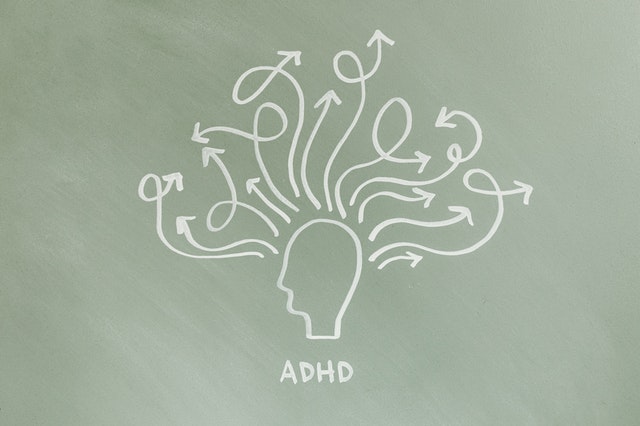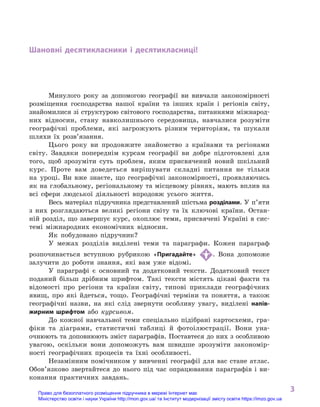Inside Our ADHD Minds: Strategies For Success

Table of Contents
Understanding Your ADHD Brain
Understanding how your ADHD brain works is crucial for developing effective coping mechanisms. This involves identifying your specific ADHD type and recognizing your personal triggers. Equally important is embracing the inherent strengths often associated with ADHD.
Identifying Your ADHD Type
ADHD isn't a one-size-fits-all condition. There are three main subtypes:
- Predominantly Inattentive Presentation: Individuals struggle primarily with focus, organization, and attention to detail. They may be easily distracted and struggle to complete tasks.
- Predominantly Hyperactive-Impulsive Presentation: These individuals exhibit excessive restlessness, impulsivity, and difficulty staying still. They may interrupt conversations frequently and act without thinking.
- Combined Presentation: This is the most common type, encompassing both inattentive and hyperactive-impulsive symptoms.
For more information on ADHD subtypes and diagnostic criteria, visit the official website of CHADD (Children and Adults with Attention-Deficit/Hyperactivity Disorder):
Recognizing ADHD Triggers
Knowing your personal triggers is key to managing your ADHD symptoms effectively. Common triggers include:
- Stress: High-stress situations can significantly exacerbate ADHD symptoms.
- Lack of Sleep: Insufficient sleep dramatically impacts focus and impulse control.
- Cluttered Environments: Overly stimulating or disorganized environments can be overwhelming.
- Emotional States: Intense emotions, both positive and negative, can make it harder to focus.
Developing self-awareness regarding your personal triggers is paramount in proactively managing your ADHD challenges.
Embracing Your ADHD Strengths
While ADHD presents challenges, it also often comes with unique strengths:
- Creativity: Individuals with ADHD often possess exceptional creative thinking skills and innovative problem-solving abilities.
- Energetic Personalities: The inherent energy can be channeled into productive pursuits, resulting in high levels of achievement when managed effectively.
- Hyperfocus: While challenging to control, the ability to hyperfocus on a task can lead to remarkable productivity when directed towards meaningful goals.
Learning to harness these strengths is crucial for achieving success and building a fulfilling life with ADHD.
Practical Strategies for Success
Implementing practical strategies is crucial for managing the day-to-day challenges of ADHD. This involves mastering time management, improving organization, and prioritizing self-care.
Time Management Techniques
Effective time management is often a significant challenge for individuals with ADHD minds. These techniques can help:
- Time Blocking: Schedule specific time slots for particular tasks.
- Pomodoro Technique: Work in focused bursts (e.g., 25 minutes) followed by short breaks. Many apps can assist with this.
- Visual Timers: Utilize visual timers to track progress and maintain focus. This can be particularly helpful for breaking down larger tasks.
Consider using apps like Forest or Focus To-Do to enhance your time management skills.
Organization and Planning
Organization and planning are vital for success with ADHD. These strategies can help:
- Planners: Use both digital and physical planners to schedule appointments, tasks, and deadlines.
- Visual Checklists: Create visual checklists to break down large tasks into smaller, manageable steps.
- Consistent Routines: Establishing consistent daily routines provides structure and predictability, reducing decision fatigue.
Explore different organizational tools to find what works best for your ADHD brain.
Mindfulness and Self-Compassion
Mindfulness and self-compassion are crucial tools for managing ADHD symptoms and improving emotional well-being.
- Mindfulness Exercises: Practice simple mindfulness techniques like deep breathing or body scans to improve focus and reduce anxiety.
- Self-Compassion: Practice self-kindness and understanding, acknowledging that setbacks are a normal part of the process.
- Positive Self-Talk: Replace negative self-talk with positive affirmations to boost self-esteem.
Seeking Support and Professional Help
Don't hesitate to seek professional help. This is not a sign of weakness, but a proactive step toward better management of your ADHD.
Therapists and Coaches
Working with a therapist specializing in ADHD can be incredibly beneficial:
- Cognitive Behavioral Therapy (CBT): CBT helps to identify and change negative thought patterns and behaviors.
- Behavioral Therapy: Behavioral therapy focuses on modifying behaviors through positive reinforcement and other techniques.
Find a therapist experienced in working with ADHD adults.
Support Groups and Communities
Connecting with others who understand your experiences is invaluable:
- Online Forums: Many online communities offer support and shared experiences.
- Local Support Groups: Check with your local mental health organizations for in-person support groups.
Sharing experiences and strategies can be incredibly supportive.
Medication Management
Medication can be a helpful tool for some individuals with ADHD, but it should be used in conjunction with other strategies, and always under the guidance of a healthcare professional:
- Consult a Doctor: Discuss medication options with your doctor or psychiatrist.
- Medication Management: Work closely with your healthcare provider to monitor the effectiveness and side effects of any medication.
Conclusion
Managing your ADHD mind effectively involves understanding your unique challenges and strengths, implementing practical strategies for success, and seeking support when needed. By understanding your ADHD brain, employing time management techniques, prioritizing organization, practicing mindfulness, and seeking professional support, you can significantly improve your focus, organization, and overall well-being. Start building your path to success by understanding and managing your ADHD mind today! Take control of your ADHD and unlock your full potential. Start implementing these strategies for an ADHD mind that thrives!

Featured Posts
-
 Byd Case Study Examining Their Lead In Electric Vehicle Battery Production
May 13, 2025
Byd Case Study Examining Their Lead In Electric Vehicle Battery Production
May 13, 2025 -
 Dy Kabryw Ykhalf Qanwn Mwaedath Mn Ajl Hbybth Aljdydt
May 13, 2025
Dy Kabryw Ykhalf Qanwn Mwaedath Mn Ajl Hbybth Aljdydt
May 13, 2025 -
 Kilkist Romiv V Ukrayini Rozpodil Za Regionami Ta Poyasnennya Tsogo Yavischa
May 13, 2025
Kilkist Romiv V Ukrayini Rozpodil Za Regionami Ta Poyasnennya Tsogo Yavischa
May 13, 2025 -
 Dzherard Batler Luchshie Roli I Filmy Po Mneniyu Eksperta
May 13, 2025
Dzherard Batler Luchshie Roli I Filmy Po Mneniyu Eksperta
May 13, 2025 -
 Reviewing The Action And Adventure In Lara Croft The Cradle Of Life
May 13, 2025
Reviewing The Action And Adventure In Lara Croft The Cradle Of Life
May 13, 2025
